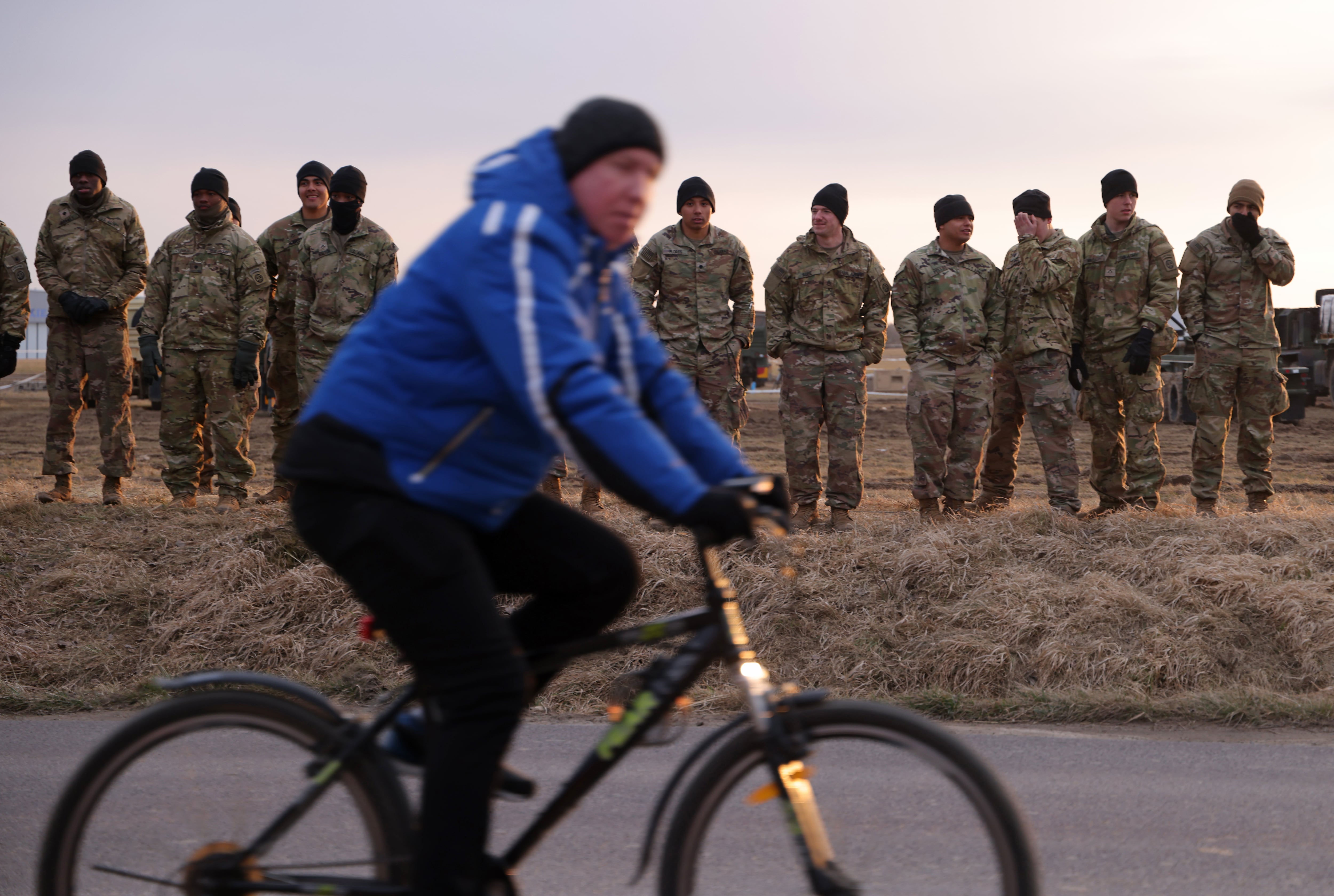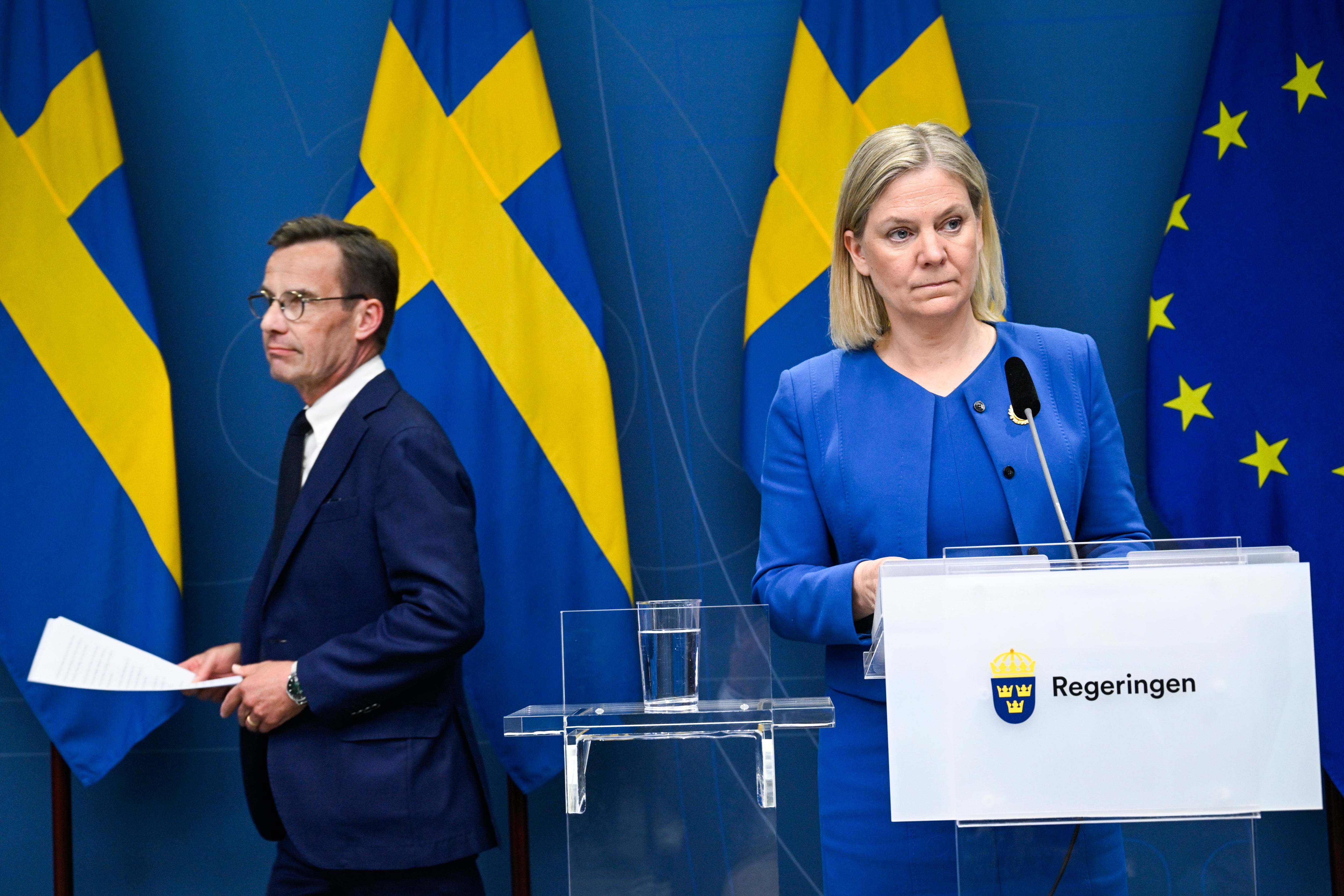WASHINGTON — If Sweden and Finland join NATO, the alliance would be able to recalibrate its force posture in the Baltic Sea to a level capable of evening out the regional deterrence balance with Russia, according to Swedish Defense Minister Peter Hultqvist.
“If we take more responsibility for the Baltic Sea together, maybe we can create a situation where we will not have so much military competition,” Hultqvist said in a brief interview with Defense News on Wednesday. He said the goal is to develop a “higher a level of threshold” that would ultimately avert conflict.
“There will be a tension and will be a competition,” he said. “But if you’re strong, you can reduce it in a way.”
His comments came after Finland and Sweden on Wednesday submitted their applications to join NATO, marking one of the biggest geopolitical ramifications of Russia’s war on Ukraine.
But NATO envoys failed to meet an immediate consensus for the organization to start membership talks with Sweden and Finland during a meeting at NATO headquarters in Brussels, as Turkey renewed its objections to the two Nordic countries joining.
Turkey is the only ally to have clearly voiced its opposition. President Recep Tayyip Erdogan insists Finland and Sweden must show more respect for Turkish sensitivities about terrorism and is refusing to budge over what he says is their alleged support for Kurdish militants.
Another complicating factor is Turkey’s bid for Washington’s consent to upgrade its F-16 jets with new missiles, radar and electronics and to buy 40 Block 70 F-16s. Ankara has framed the latter deal as compensation for Turkey’s financial losses after the U.S. ousted Turkey from the F-35 program in 2019 over its purchase of the Russian S-400 missile defense system.
RELATED

NATO Secretary-General Jens Stoltenberg said he’s confident about finding consensus on seeing the Swedish and Finnish membership applications through.
Hultqvist said the best way to resolve Turkey’s concerns is through dialogue, but he declined to comment on the status of Sweden’s efforts to engage Turkey or the merits of Turkey’s concerns.
“I will not go into that. We will come back when we have solved the question,” he said.
It was unclear how long the now-complicated process of Sweden’s accession would take. Hultqvist said that while that the legislatures of 30 NATO countries would have to decide, Congress delivering on promises of strong support would make a difference.
“We want to have it as fast as possible, and when I met with people from the House of Representatives and the Senate yesterday, they were very clear that their ambition is to do it very fast,” Hultqvist said. “That can be a very good signal to others in NATO.”
After meeting with U.S. Defense Secretary Lloyd Austin at the Pentagon Wednesday, Hultqvist said it was a “very good conversation” about the possibility of shared naval presence in the Baltic Sea near Swedish waters, joint land exercises, strategic flights and cyber cooperation.
“I see a future with more of a U.S. presence in our part of the world, but I also see that the United Kingdom will do the same,” Hultqvist said.
Planned exercises include Archipelago Endeavor, which involves U.S. Marines and Swedish forces, and the massive BALTOPS exercise, which is sponsored by U.S. Naval Forces Europe and involves 10 countries, 50 naval vessels and 5,000 soldiers.
Earlier in the week, Pentagon Press Secretary John Kirby declined to go into detail about what security guarantees the U.S. would offer Sweden and Finland before their NATO applications were approved, a process that could take weeks or months. Both have modern militaries the U.S. has worked and exercised with before, he noted.
“From just a bilateral, U.S. relationship perspective, there’s a level of comfort there,” Kirby said. “And we’re confident that should there be capabilities or support that either nation might need, in the interim between application and accession, that we’d be able to work something out with them.”
At the same time, staff-level talks are ongoing about a more specific package of assurance measures that would help underwrite Swedish and Finnish security during a potentially prolonged accession phase, according to officials.
RELATED

As Sweden’s military spending has ramped up in recent years, Hultqvist said it’s time to invest in more military personnel and expanded air and naval forces.
“We are now in a process of discussing what sort of things, but you must both have a bigger wartime organization, but also have more of these high-tech [defense capabilities],” he said.
On Wednesday, U.S. President Joe Biden threw his support behind the Nordic countries’ NATO bid. “While their applications for NATO membership are being considered, the United States will work with Finland and Sweden to remain vigilant against any threats to our shared security, and to deter and confront aggression or the threat of aggression,” he said in a statement.
Russian leaders have toned down their previously threatening rhetoric this week that had accompanied Swedish and Finnish NATO membership considerations in recent months. But Hultqvist dismissed the idea that Russia’s recent words are even worth considering.
“Russia is an authoritarian, aggressive state that has a low threshold to use military power to fulfill political goals — and they are unpredictable,” Hultqvist said. “When we think about Russia, we can’t think in weeks or months, we must think in years. In the end, it’s a fight between democratic values and an authoritarian way of seeing the future.”
Russian state-run news agency TASS quoted Foreign Minister Sergey Lavrov as saying Moscow always considered the two Nordic countries aligned with the West.
“Finland, Sweden and other neutral countries have for years participated in NATO’s military exercises,” Lavrov was quoted as saying.
TASS also quoted him as saying the two Nordic countries had no reason to be worried about their security.
With reporting by Bryant Harris and The Associated Press.
Joe Gould was the senior Pentagon reporter for Defense News, covering the intersection of national security policy, politics and the defense industry. He had previously served as Congress reporter.
Sebastian Sprenger is associate editor for Europe at Defense News, reporting on the state of the defense market in the region, and on U.S.-Europe cooperation and multi-national investments in defense and global security. Previously he served as managing editor for Defense News. He is based in Cologne, Germany.








